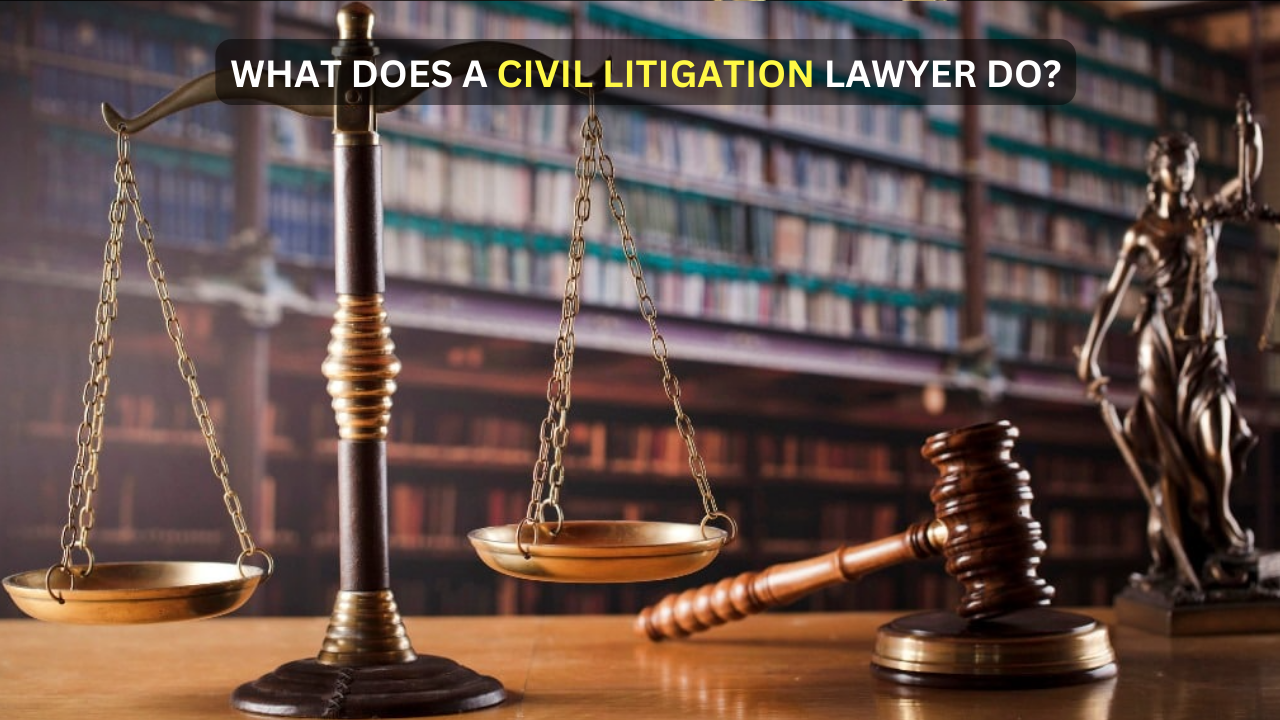In the intricate tapestry of the legal system, civil litigation lawyers play a vital role in resolving disputes and upholding justice. These legal professionals navigate the complexities of civil litigation, ensuring that individuals, businesses, and organizations receive fair representation in court. Civil litigation involves the resolution of non-criminal disputes through legal proceedings, encompassing a wide array of matters such as contract disputes, personal injury claims, property disputes, and more. This article delves into the multifaceted world of civil litigation lawyers, shedding light on their roles, responsibilities, and the significance they hold within the legal realm.
Understanding Civil Litigation
Civil litigation refers to the legal process that encompasses the resolution of disputes between parties, typically involving claims for compensation or specific actions rather than criminal charges. Unlike criminal cases, which involve state prosecution of alleged offenders, civil litigation revolves around individuals, entities, or organizations seeking resolution for grievances.
Roles and Responsibilities of a Civil Litigation Lawyer
1. Client Consultation and Case Evaluation: Civil litigation lawyers begin by conducting in-depth consultations with their clients. They listen attentively to their clients’ accounts of the dispute, collecting crucial information and documents to assess the merits of the case. Lawyers evaluate the potential legal remedies available and advise clients on the feasibility of pursuing legal action.
2. Pre-litigation and Negotiation: Before diving into court proceedings, civil litigation lawyers often attempt to resolve disputes through negotiation and alternative dispute resolution methods such as mediation and arbitration. They engage in discussions with opposing parties, working to find common ground and achieve settlements that avoid the time and costs associated with a full-blown trial.
3. Pleadings and Document Preparation: When negotiations fail, civil litigation lawyers draft pleadings, which include the initial complaint filed by the plaintiff (the party bringing the lawsuit) and the defendant’s response. These legal documents outline the claims, defenses, and legal arguments of both parties, establishing the framework for the case.
4. Discovery Phase: Civil litigation involves a thorough fact-finding process known as discovery. Lawyers on both sides exchange relevant information, documents, and evidence to build their cases. This phase includes depositions, interrogatories, requests for documents, and expert witness testimony, all of which contribute to uncovering the truth behind the dispute.
5. Legal Research and Strategy: Civil litigation lawyers delve into extensive legal research to identify case precedents, statutes, and regulations that can bolster their arguments. This research informs the development of a comprehensive legal strategy tailored to the unique circumstances of each case.
6. Motion Practice: Throughout the litigation process, lawyers may file various motions to address specific legal issues. These motions can include requests to dismiss the case, requests for summary judgment, and motions to exclude evidence. Effective motion practice can significantly shape the trajectory of a case.
7. Trial Preparation: If the dispute remains unresolved, civil litigation lawyers prepare meticulously for trial. This involves refining legal arguments, preparing witnesses, and organizing evidence to present a compelling case before the court.
8. Courtroom Representation: One of the central roles of civil litigation lawyers is to represent their clients in court. They present arguments, question witnesses, and cross-examine opposing witnesses during trial. Their ability to articulate legal points and present evidence can greatly influence the outcome of a case.
9. Settlement Negotiation (During Trial): Even during trial, civil litigation lawyers often explore settlement options. If circumstances change or new information emerges, they may engage in last-minute negotiations to avoid a protracted trial and reach a mutually acceptable resolution.
10. Post-Trial Proceedings: Following a trial, civil litigation lawyers can participate in post-trial proceedings, such as appeals. If either party believes that errors were made during the trial that affected the outcome, they can seek a review by a higher court.
11. Client Communication: Throughout the litigation process, effective communication with clients is paramount. Civil litigation lawyers keep their clients informed about case developments, potential risks, and strategic decisions, ensuring that clients are active participants in their own legal matters.
12. Legal Ethics and Professionalism: Maintaining the highest standards of ethical conduct and professionalism is a cornerstone of a civil litigation lawyer’s responsibilities. Upholding the law and adhering to ethical guidelines ensures the integrity of the legal system and builds trust with clients.
Conclusion
In a world where conflicts and disputes are inevitable, civil litigation lawyers serve as champions of justice, diligently working to protect the rights and interests of their clients. Their roles extend beyond the courtroom, encompassing the intricate web of legal research, negotiation, strategy development, and communication. Civil litigation lawyers play an essential role in upholding the rule of law, ensuring that the principles of fairness, equity, and justice are upheld within the legal system. Through their dedication and expertise, they navigate the complexities of the legal landscape, striving to achieve favorable outcomes for their clients while contributing to the evolution of legal precedents.

